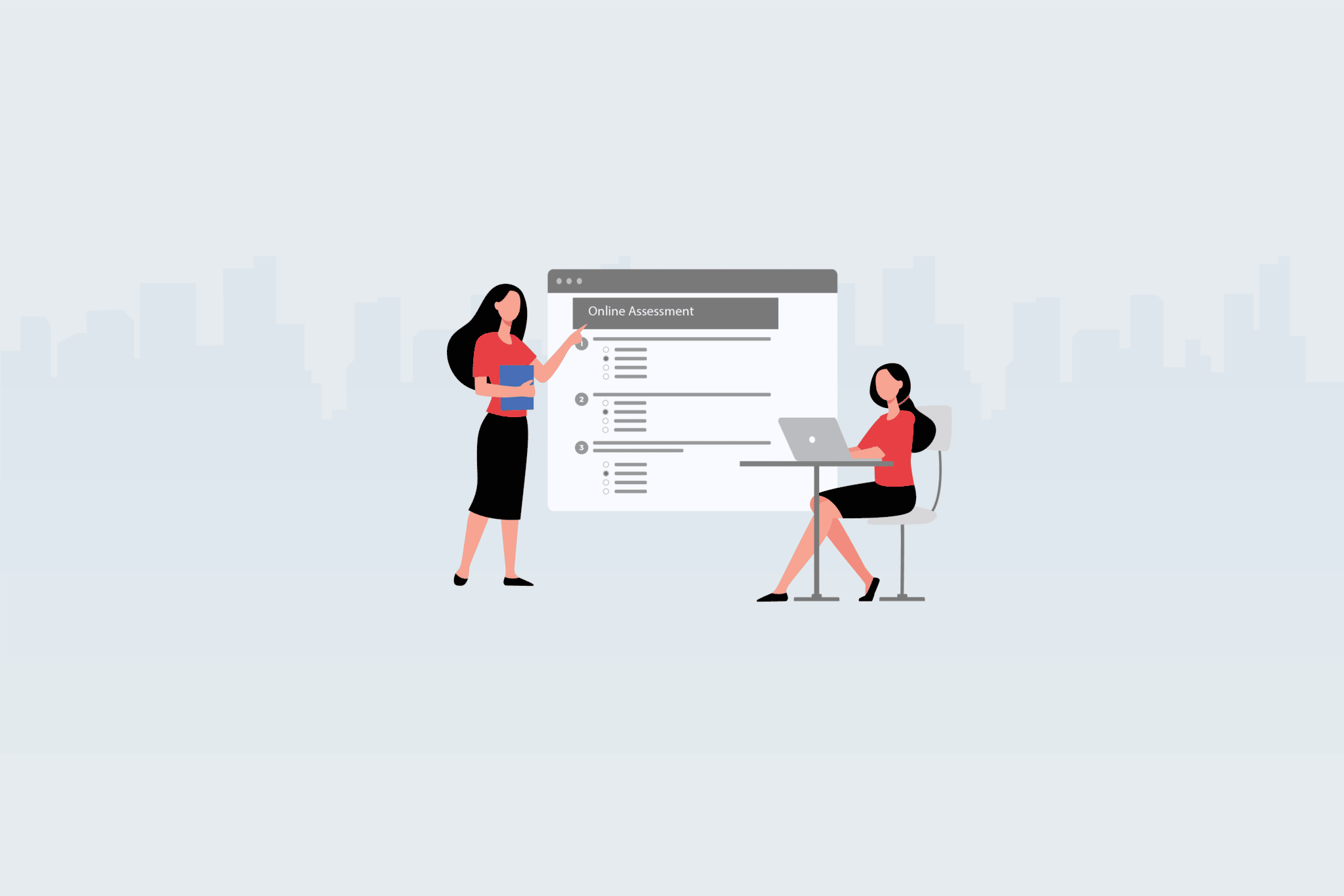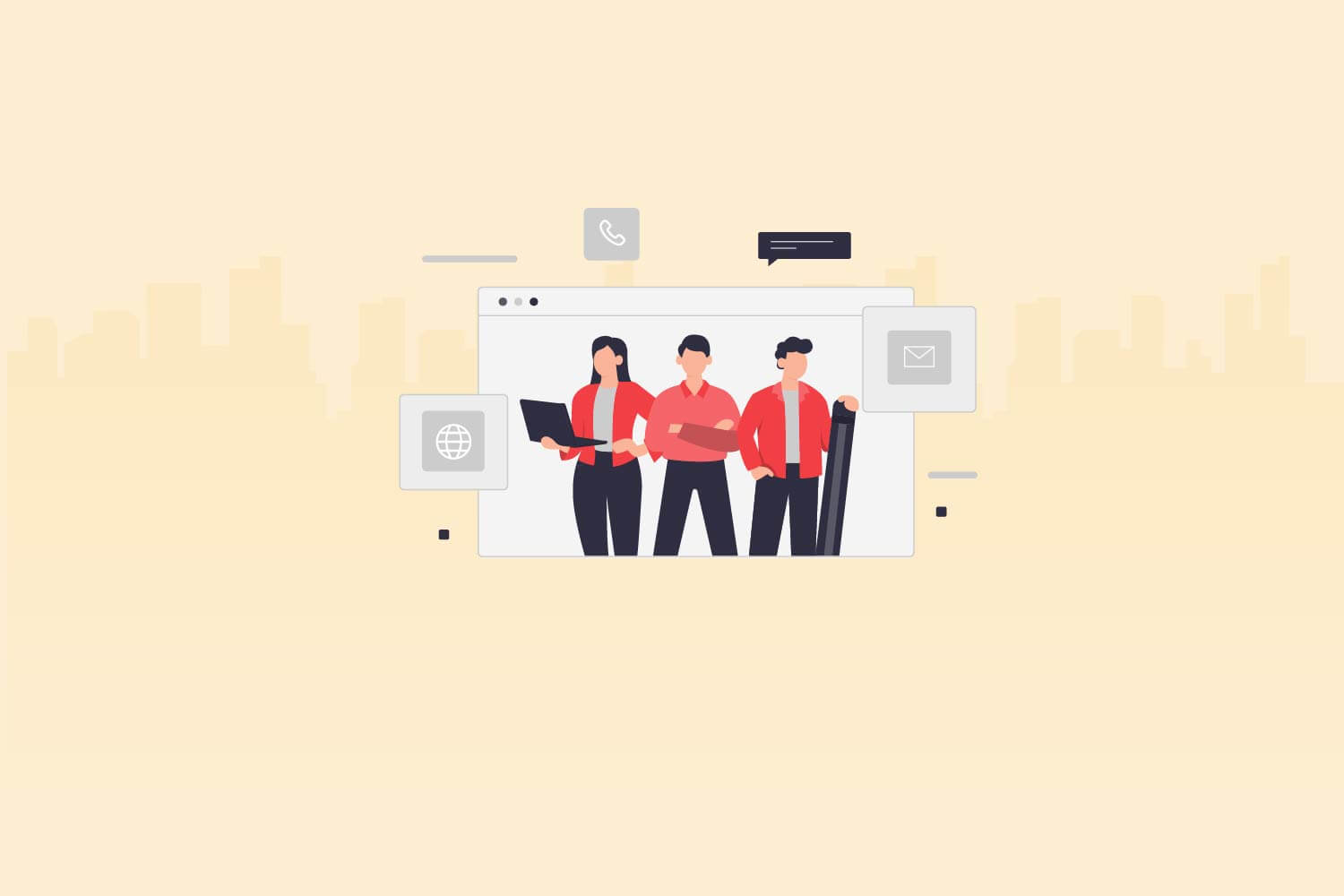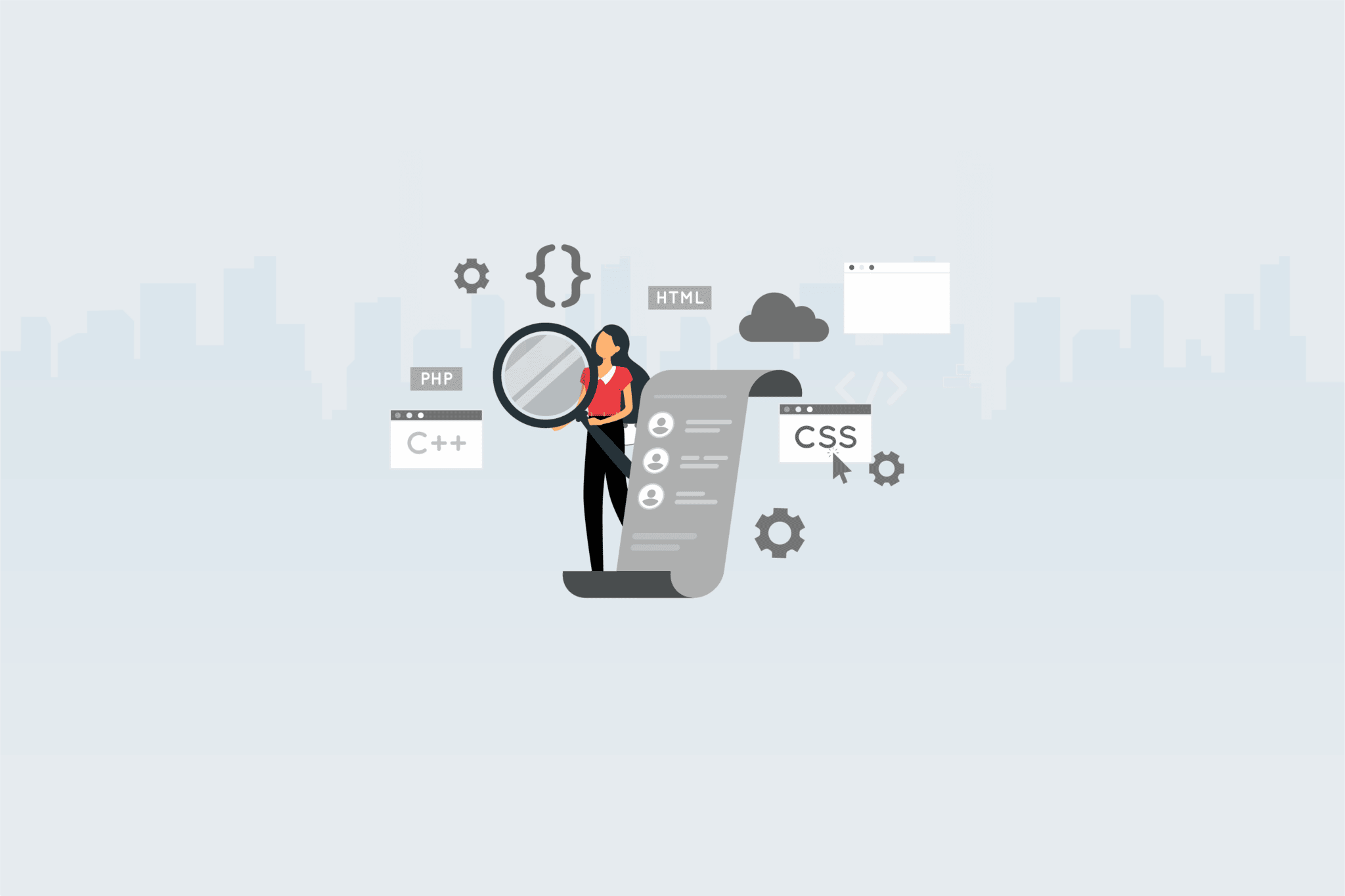The role of Reporting Analyst has become increasingly vital in today’s data-driven business landscape. As organizations strive to make data-informed decisions, the demand for skilled Reporting Analysts has surged. According to recent analytics, the recruiting trend for Reporting Analysts has witnessed a significant rise, with HR departments and CXOs recognizing the value of professionals who can translate complex data into actionable insights. Reporting Analysts play a pivotal role in collecting, analyzing, and presenting data to facilitate strategic decision-making processes.
Their expertise in data visualization, statistical analysis, and reporting tools enables organizations to extract meaningful information from vast datasets and gain a competitive edge. In this dynamic landscape, HR professionals and CXOs understand the critical importance of finding exceptional Reporting Analysts who possess a blend of technical proficiency, analytical thinking, and effective communication skills to deliver valuable insights that drive business growth.
Here are the top 60 Reporting Analyst interview questions to ask job applicants:
15 general interview questions for the Reporting Analyst
- Can you explain your experience with data analysis and reporting? How have you used your skills to provide actionable insights to stakeholders?
- What reporting tools and software are you familiar with? Can you provide examples of how you have utilized these tools in your previous roles?
- How do you ensure data accuracy and quality in your reports? Can you share your approach to data validation and verification?
- Tell us about a time when you had to work with a large dataset. How did you manage and analyze the data to extract meaningful information?
- How do you stay updated with the latest trends and advancements in reporting and analytics? Can you provide examples of how you have applied new techniques or technologies in your work?
- Describe a situation where you had to prioritize multiple reporting requests with tight deadlines. How did you manage your time and ensure timely delivery without compromising quality?
- Can you explain the process you follow to understand reporting requirements from stakeholders? How do you ensure that you deliver reports that meet their needs and expectations?
- Have you ever faced challenges in presenting complex data to non-technical stakeholders? How did you simplify the information and ensure understanding while maintaining its accuracy?
- What steps do you take to ensure data security and confidentiality in your reporting activities?
- Can you provide an example of a situation where you identified an opportunity to improve reporting processes or enhance data visualization? How did you implement the changes, and what were the outcomes?
- How do you handle situations where there are discrepancies or inconsistencies in the data you are working with? Can you share an example of how you resolved such issues?
- Describe a time when you had to collaborate with other teams or departments to gather data or align reporting requirements. How did you ensure effective communication and coordination throughout the process?
- Tell us about a challenging reporting project you worked on. What obstacles did you face, and how did you overcome them to deliver the desired results?
- How do you ensure your reports are user-friendly and easily digestible for the intended audience? Can you share any strategies or best practices you follow in data visualization and presentation?
- Can you provide an example of how you have used storytelling techniques or narratives in your reporting to enhance understanding and engagement?
5 sample answers to general interview questions for the Reporting Analyst
- Can you explain your experience with data analysis and reporting? How have you used your skills to provide actionable insights to stakeholders?
Look for: In the candidate’s answer, assess their ability to articulate their experience with data analysis and reporting, highlighting how they have translated data into actionable insights for stakeholders.
Example answer: “Throughout my career, I have gained extensive experience in data analysis and reporting. In my previous role, I was responsible for analyzing sales data to identify trends and provide actionable insights to the sales team. By leveraging statistical techniques and data visualization tools, I uncovered patterns in customer behavior, allowing the team to adjust their strategies and target specific market segments. Additionally, I developed customized reports that highlighted key performance metrics, such as sales growth, customer retention, and market share. These reports provided stakeholders with clear and concise information, enabling them to make data-driven decisions and drive business success.”
- What reporting tools and software are you familiar with? Can you provide examples of how you have utilized these tools in your previous roles?
Look for: Assess the candidate’s proficiency in reporting tools and software relevant to the role. Look for specific examples of how they have used these tools to enhance reporting processes and deliver impactful insights.
Example answer: “I am well-versed in various reporting tools, including Microsoft Power BI, Tableau, and SQL. In my previous role, I utilized Tableau extensively to create interactive dashboards that allowed stakeholders to explore data and gain real-time insights. For instance, I developed a sales dashboard that integrated data from multiple sources, providing a comprehensive view of sales performance across different regions and product categories. This enabled the sales team to identify underperforming areas and take immediate action to boost revenue. Additionally, I leveraged SQL to extract and manipulate data, ensuring accurate and reliable reporting.”
- How do you ensure data accuracy and quality in your reports? Can you share your approach to data validation and verification?
Look for: Assess the candidate’s attention to detail and their systematic approach to ensuring data accuracy and quality in their reporting processes.
Example answer: “Data accuracy and quality are of utmost importance in reporting. To ensure this, I follow a rigorous process of data validation and verification. I start by conducting comprehensive data checks to identify any anomalies, missing values, or inconsistencies. I validate the data against known benchmarks or historical trends to ensure its reliability. Additionally, I engage in thorough data cleaning and transformation processes, addressing any data issues before proceeding with analysis and reporting. By adhering to these best practices, I can confidently deliver reports that stakeholders can trust for making informed decisions.”
- Describe a situation where you had to prioritize multiple reporting requests with tight deadlines. How did you manage your time and ensure timely delivery without compromising quality?
Look for: Assess the candidate’s ability to handle time-sensitive reporting tasks, prioritize effectively, and maintain high-quality standards.
Example answer: “In my previous role, I often encountered situations where multiple reporting requests would come in with tight deadlines. To manage my time and ensure timely delivery without compromising quality, I implemented a prioritization system. I assessed the urgency and impact of each request, considering factors such as stakeholder importance and strategic value. I then allocated dedicated time slots for each task, setting milestones to track progress. Additionally, I communicated transparently with stakeholders, managing their expectations and providing regular updates on the reporting timelines. By employing these strategies and maintaining a disciplined approach, I successfully met the deadlines while delivering accurate and insightful reports.”
- Can you explain the process you follow to understand reporting requirements from stakeholders? How do you ensure that you deliver reports that meet their needs and expectations?
Look for: Assess the candidate’s communication skills, ability to understand stakeholder requirements, and their process for delivering reports that align with expectations.
Example answer: “When understanding reporting requirements from stakeholders, I follow a collaborative process. I engage in active discussions with stakeholders to gain a clear understanding of their objectives, the key metrics they value, and the level of detail they require. I ask probing questions to ensure that I grasp the context and purpose of the reports. Additionally, I provide stakeholders with prototypes or sample reports to gather their feedback and make necessary adjustments. By maintaining open lines of communication throughout the reporting process, I can ensure that the delivered reports meet their needs and expectations, providing them with actionable insights for decision-making.”
15 behavioral interview questions for a Reporting Analyst
- Tell me about a time when you had to handle a challenging reporting project. How did you approach it and what were the results?
- Describe a situation where you had to work collaboratively with other teams or departments to gather data for reporting purposes. How did you ensure effective communication and coordination?
- Can you share an example of a time when you had to present complex data to non-technical stakeholders? How did you ensure their understanding and engagement?
- Tell me about a time when you had to deal with a discrepancy or inconsistency in the data you were working with. How did you resolve it?
- Describe a time when you had to analyze a large dataset. How did you manage the volume of data and extract meaningful insights from it?
- Can you provide an example of a reporting process or system improvement you suggested and implemented? What impact did it have?
- Describe a situation where you faced tight deadlines for multiple reporting requests. How did you prioritize and manage your time to ensure timely delivery?
- Tell me about a time when you encountered resistance from stakeholders regarding the findings or insights presented in a report. How did you handle the situation?
- Can you share an experience where you identified an error or flaw in an existing reporting process? How did you address it and improve the process?
- Describe a time when you had to adapt your reporting approach or style to meet the needs of different stakeholders. How did you ensure effective communication and understanding?
- Can you share an example of a reporting project where you had to handle sensitive or confidential data? How did you maintain data security and confidentiality throughout the process?
- Describe a time when you had to troubleshoot and resolve technical issues or challenges related to reporting tools or software.
- Can you share an example of a situation where you had to present data-driven recommendations or insights that led to significant business impact or improvement?
- Describe a time when you had to manage competing priorities and demands in your reporting responsibilities. How did you handle the situation and ensure the quality of your work?
- Tell me about a time when you had to deal with a stakeholder who requested additional or customized reports beyond the standard requirements. How did you manage their expectations and deliver the requested reports effectively?
5 sample answers to behavioral interview questions for the Reporting Analyst
- Tell me about a time when you had to handle a challenging reporting project. How did you approach it and what were the results?
Look for: Assess the candidate’s ability to handle complex reporting projects, their problem-solving skills, and the outcomes they achieved.
Example answer: “In a previous role, I was tasked with analyzing and reporting on customer satisfaction data from multiple sources. The challenge was that the data was fragmented, inconsistent, and required extensive cleaning and validation. To tackle this, I developed a comprehensive data cleaning process, including data normalization and merging. I also created a set of validation rules to ensure accuracy. Through diligent data analysis and visualization, I was able to identify key patterns and trends that provided valuable insights to our customer service team. The end result was an improved understanding of customer satisfaction drivers, which led to targeted improvement initiatives and a significant increase in customer retention.”
- Describe a situation where you had to work collaboratively with other teams or departments to gather data for reporting purposes. How did you ensure effective communication and coordination?
Look for: Assess the candidate’s collaboration and communication skills, their ability to work cross-functionally, and their approach to achieving alignment in data gathering efforts.
Example answer: “In a previous role, I was responsible for reporting financial performance metrics that required data from various departments. To ensure effective collaboration, I initiated regular meetings with representatives from each department to align on the data requirements, data collection methods, and reporting timelines. I established clear communication channels and shared a centralized document outlining the data sources, definitions, and validation processes. By fostering a collaborative environment and maintaining open lines of communication, we were able to gather accurate and timely data. This resulted in streamlined reporting processes, reduced duplication of effort, and improved data consistency across reports.”
- Can you share an example of a time when you had to present complex data to non-technical stakeholders? How did you ensure their understanding and engagement?
Look for: Assess the candidate’s ability to simplify complex information, their communication skills, and their approach to engaging non-technical stakeholders.
Example answer: “In my previous role, I had to present a detailed financial analysis report to the senior leadership team, including individuals with limited technical expertise. To ensure their understanding and engagement, I prepared a visually appealing executive summary that highlighted the key findings and recommendations. I utilized data visualization techniques such as charts and graphs to simplify complex information. Additionally, I prepared a narrative that explained the implications of the findings in a clear and concise manner. During the presentation, I actively encouraged questions and provided real-world examples to enhance their comprehension. The result was a highly engaged discussion, where stakeholders were able to grasp the insights and make informed decisions based on the data presented.”
- Tell me about a time when you encountered resistance from stakeholders regarding the findings or insights presented in a report. How did you handle the situation?
Look for: Assess the candidate’s ability to handle resistance, their diplomacy skills, and their approach to addressing stakeholders’ concerns.
Example answer: “In a previous project, I presented a report that revealed certain inefficiencies in a department’s workflow processes. Some stakeholders were initially resistant to accepting the findings, as it meant potential changes to their established routines. To address their concerns, I took a diplomatic approach. I scheduled individual meetings with key stakeholders to listen to their perspectives and understand their reservations. I then provided additional context and evidence to support the findings, emphasizing the potential benefits of the proposed changes. By actively involving them in the decision-making process, addressing their concerns, and highlighting the positive outcomes, I was able to gain their buy-in and foster a collaborative environment for implementing process improvements.”
- Describe a time when you had to adapt your reporting approach or style to meet the needs of different stakeholders. How did you ensure effective communication and understanding?
Look for: Assess the candidate’s flexibility, adaptability, and their ability to tailor reporting approaches to different stakeholders’ needs.
Example answer: “In my previous role, I had to report on project performance to stakeholders with varying levels of technical expertise. To cater to their diverse needs, I customized my reporting approach. For technical stakeholders, I included detailed technical metrics and visualizations to provide in-depth insights. However, for non-technical stakeholders, I adopted a more high-level approach, focusing on the project’s strategic impact and highlighting key milestones achieved. I also provided clear explanations of technical terms and concepts to ensure their understanding. By tailoring the reporting style and level of detail to each stakeholder, I ensured effective communication and engagement, enabling stakeholders to make informed decisions based on the reports presented.”
15 personality interview questions for the Reporting Analyst
- How do you handle tight deadlines and multiple reporting requests? Can you provide an example of a time when you successfully managed such situations?
- Describe your approach to problem-solving and decision-making in the context of reporting analysis. How do you ensure accuracy and attention to detail?
- How do you prioritize your tasks and manage your time effectively when working on multiple reporting projects simultaneously?
- Can you share an experience where you had to adapt to changes in reporting requirements or priorities? How did you handle the situation?
- Describe a time when you had to work independently on a reporting project. How do you stay motivated and focused without direct supervision?
- How do you ensure data integrity and accuracy in your reporting? What steps do you take to validate and verify the data you work with?
- How do you approach collaborating with colleagues or stakeholders who have different reporting needs or preferences? Can you provide an example?
- Can you describe a situation where you had to provide feedback or suggestions to improve a reporting process or system? How did you handle it?
- How do you stay updated with industry trends and advancements in reporting tools and technologies?
- Can you share an example of a time when you had to explain complex reporting concepts or findings to a non-technical audience? How did you ensure their understanding?
- Describe a situation where you had to handle confidential or sensitive data in your reporting. How do you maintain data security and confidentiality?
- How do you handle feedback or criticism on your reporting work? Can you provide an example of how you have used feedback to improve your reporting skills?
- Can you describe a time when you had to manage a challenging stakeholder or client in the reporting process? How did you handle their expectations and ensure their satisfaction?
- How do you approach quality control and assurance in your reporting work? What steps do you take to ensure accuracy and completeness?
- Can you share an example of a time when you had to present a complex report or analysis to senior management? How did you prepare for the presentation and ensure its effectiveness?
5 sample answers to personality interview questions for Reporting Analyst
- How do you handle tight deadlines and multiple reporting requests? Can you provide an example of a time when you successfully managed such situations?
Look for: Assess the candidate’s ability to prioritize tasks, manage time effectively, and handle high-pressure situations.
Example answer: “As a Reporting Analyst, I understand the importance of meeting deadlines and handling multiple reporting requests. One example of successfully managing such situations was when I had to prepare monthly financial reports for multiple departments within a tight timeframe. To prioritize effectively, I created a detailed schedule outlining the tasks and deadlines for each report. I also communicated with stakeholders to clarify requirements and set realistic expectations. By staying organized, utilizing time management techniques, and dedicating focused blocks of time to each report, I was able to meet all deadlines and deliver accurate and high-quality reports.”
- How do you approach collaborating with colleagues or stakeholders who have different reporting needs or preferences? Can you provide an example?
Look for: Assess the candidate’s ability to adapt to different reporting requirements, collaborate effectively, and handle diverse stakeholder preferences.
Example answer: “Collaboration is crucial in the reporting process, especially when working with colleagues or stakeholders who have different reporting needs or preferences. In a previous role, I worked closely with various departments to gather data for monthly performance reports. Each department had unique requirements and preferred different reporting formats. To accommodate their needs, I initiated regular meetings to understand their preferences and align on the reporting structure. I also created templates that allowed for customization while maintaining consistency across reports. By actively listening, being flexible, and finding common ground, I was able to build strong working relationships and deliver reports that met the needs of all stakeholders.”
- How do you handle feedback or criticism on your reporting work? Can you provide an example of how you have used feedback to improve your reporting skills?
Look for: Assess the candidate’s ability to receive feedback positively, learn from it, and continuously improve their reporting skills.
Example answer: “Feedback is a valuable opportunity for growth, and I actively seek it to improve my reporting skills. In a previous role, I received feedback on the clarity of my reports and the visual presentation of data. Instead of being defensive, I embraced the feedback and took proactive steps to address the areas for improvement. I sought guidance from colleagues experienced in data visualization and attended relevant workshops to enhance my skills. I also explored different visualization techniques and experimented with new report layouts. By incorporating the feedback and applying new techniques, I was able to create reports that were more visually engaging and easier to understand, resulting in positive feedback from stakeholders.”
- How do you approach quality control and assurance in your reporting work? What steps do you take to ensure accuracy and completeness?
Look for: Assess the candidate’s attention to detail, commitment to accuracy, and their approach to quality control in reporting.
Example answer: “Accuracy and completeness are paramount in reporting, and I have a rigorous approach to quality control. One of the steps I take is to establish a robust data validation process. I carefully review the data sources, ensuring they are reliable and up-to-date. I also perform thorough data cleansing and verification, cross-referencing data points to identify any discrepancies. In addition, I have developed detailed checklists to ensure that I cover all necessary components of a report, such as calculations, data visualizations, and narrative explanations. By following these quality control procedures and paying close attention to detail, I can confidently deliver accurate and error-free reports.”
- How do you stay updated with industry trends and advancements in reporting tools and technologies?
Look for: Assess the candidate’s commitment to professional development, curiosity, and their proactive approach to staying informed about industry trends.
Example answer: “Staying updated with industry trends and advancements is essential for a Reporting Analyst. I regularly engage in professional development activities to expand my knowledge. I attend industry conferences, webinars, and networking events to learn from experts and exchange insights. I also follow reputable industry publications and blogs to stay informed about the latest reporting tools, techniques, and best practices. Additionally, I actively seek opportunities to enhance my technical skills through online courses and certifications. By continuously learning and staying informed, I can leverage the latest tools and methodologies to improve the quality and efficiency of my reporting work.”
When should you use skill assessments in your hiring process for Reporting Analyst?
Skill assessments should be used in the hiring process for Reporting Analysts to ensure that candidates possess the necessary technical and analytical skills required for the role. Assessments are important because they provide objective and standardized measurements of a candidate’s abilities, allowing employers to make informed decisions based on concrete evidence. By using skill assessments, employers can effectively gauge a candidate’s proficiency in data analysis, reporting tools, data visualization, SQL querying, spreadsheet management, and other relevant skills.
There are several assessments that can be used to evaluate the skills of Reporting Analyst candidates. These may include:
- Data analysis exercises
Candidates can be given real or simulated datasets and asked to perform data analysis tasks such as cleaning, transforming, and analyzing the data to derive insights. This assessment helps evaluate their ability to work with data and draw meaningful conclusions.
- Reporting tool proficiency tests
Candidates can be asked to demonstrate their proficiency in popular reporting tools such as Microsoft Excel, Power BI, Tableau, or SQL reporting tools. These tests assess their familiarity with the features and functionalities of these tools.
- Data visualization assessments
Candidates can be presented with raw data and asked to create visually appealing and informative reports or dashboards. This assessment evaluates their ability to present data in a visually compelling manner.
- SQL querying assessments
Candidates can be tested on their SQL querying skills by providing them with sample databases or scenarios and asking them to write SQL queries to retrieve specific information. This assessment measures their ability to extract and manipulate data using SQL.
- Spreadsheet management assessments
Candidates can be given tasks that require them to organize and manipulate data using spreadsheet software like Microsoft Excel. This assessment helps evaluate their ability to use formulas, functions, and pivot tables to analyze and present data effectively.
By incorporating skill assessments into the hiring process, employers can ensure they are selecting candidates with the technical skills and competencies required to excel as Reporting Analysts. Assessments provide a fair and standardized evaluation, enabling employers to make informed decisions and build a strong reporting team.
Use our interview questions and skill tests to hire talented Reporting Analyst
Unlock the potential of your hiring process with Testlify’s comprehensive skill assessments and interview questions specifically designed for Reporting Analyst.
Our extensive test library offers a wide range of assessments, including cognitive function, personality, situational judgment, programming, and more. By leveraging these assessments, you can objectively evaluate candidates’ abilities, ensuring you shortlist the most talented individuals efficiently.
To further enhance your hiring process, we invite you to book a free 30-minute live demo. Our expert team will guide you through the platform, showcasing relevant skill tests tailored to your hiring needs. With our support, you can streamline candidate selection, saving valuable time and resources.
Ready to find the perfect fit for your Reporting Analyst role? Testlify provides the tools you need to make informed hiring decisions. Explore our skill assessments and interview questions today to uncover exceptional talent for your team.








